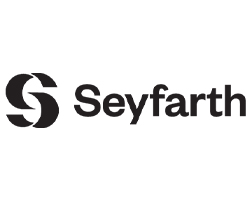PRO Act Series: Captive Audience Meetings
More of the Good (For Unions), The Bad, and the Ugly
- By [ Evan Armstrong , Kyllan Kershaw , Joseph Vento ]
- 04/19/2022
In this ongoing series about the PRO Act, we’ll shine a light on why this legislation is so harmful, and why retailers are advocating instead for modernized federal workforce policy that enables the industry to continue investing in people and communities. The below insight, which focuses on captive audience meetings under the PRO Act, was provided by Kyllan B. Kershaw and Joseph Vento of Seyfarth Shaw LLP's Labor Management Relations practice group.

The Good (For Unions): Prohibits Captive Audience Meetings
The PRO Act would render it an unfair labor practice for employers to hold meetings to discuss pros and cons of unionization with employees. Such meetings are called captive audience meetings an occur when an employer requires employees to attend a meeting on paid company time so the company can discuss its views on labor unions with employees.
A typical work meeting could also transform into a captive audience meeting if an employer representative expresses their views on unionization during the meeting (for example, in response to an employee question). Currently, employers may lawfully hold captive audience meetings, as long as: (a) any such meetings end prior to 24 hours before the start of a union election; and (b) employers comply with the National Labor Relations Act (“NLRA”) during such meetings.
Presently, Section 8(c) of the NLRA allows an employer to express its “views, argument, or opinion, or the dissemination thereof, whether in written, printed, graphic, or visual form…if such expression contains no threat of reprisal or force or promise of benefit.” The PRO Act seeks to add the following language to the end of this sentence: Provided, that it shall be an unfair labor practice…for any employer to require or coerce an employee to attend or participate in such employer’s campaign activities unrelated to the employee’s job duties…” An “employer’s campaign activities” remains undefined but the use of the word “campaign” suggests that the restriction would apply only to conduct during the union and employer campaigning period, after a union petitions to be recognized as the employees’ bargaining representative or otherwise demands recognition from the employer.
Unions would still have free rein on campaigning under the PRO Act, as the legislation makes no effort to restrict or limit union speech.
The Bad: Not Content to Wait on Congress, NLRB General Counsel Abruzzo Has Embarked on a Mission to Vilify Such Meetings
Whether the PRO Act eventually passes may ultimately be irrelevant to this issue. On April 7, 2022, NLRB General Counsel Jennifer Abruzzo issued GC Memorandum 22-04 to all Regional Directors, advising that her office will urge the Board to render captive audience meetings unlawful, essentially asking the Board to overturn 70 plus years of Board and judicial precedent to the contrary.Since employers primarily—if not exclusively—communicate with employees at the workplace, employers rely heavily on captive audience meetings to discuss their views on labor unions with employees during a union organizing campaign. Employers use this time to educate employees on the realities of collective bargaining, potential downsides to union representation, and the benefits to employees from dealing directly with the employer. Employers also use these meetings to highlight their own wages and employee benefits, so employees can make an educated choice about how those compare to any union-campaign promises.
Nonetheless, GC Abruzzo declares that such meetings “inherently involve an unlawful threat that employees will be disciplined or suffer other reprisals if they exercise their protected right not to listen to such speech.” Assuming that employees who choose not to attend such meetings are automatically fired or disciplined (which is rarely the case), the General Counsel states that she will urge the Board to “hold that, in two circumstances, employees will understand their presence and attention to employer speech concerning their exercise of Section 7 rights to be required: when employees are (1) forced to convene on paid time or (2) cornered by management while performing their job duties.” While GC Abruzzo’s memo contains a footnote stating that it “would not apply where employers require employees to attend meetings on subjects other than the exercise of Section 7 rights,” it “would apply if, for example, the employer uses the meeting to dissuade employees from acting together to improve job training or safety.” This footnote provides little comfort to employers, who suddenly have to wonder if non-coercively encouraging employees to approach management with safety concerns versus posting issues on social media could be deemed as “dissuading employees from acting together to improve job training or safety.”
Notably, GC Abruzzo seeks to outlaw these meetings irrespective of whether there is an upcoming union election, meaning that an employer’s annual training on workplace benefits—unrelated to any campaign or organizing activity--could be unlawful if it touches on Section 7 rights.
The Ugly: This Unnecessary Move Only Serves to Eliminate Employers’ Ability to Foster Open Conversations with Employees about an Important Topic That Could Permanently Alter their Job
The GC claims that captive audience meetings are “inherently coercive,” but the NLRA already protects employees from coercion during captive audience meetings, as an employer may not threaten, interrogate, promise or surveil (“TIPS”) employees in order to sway their vote. The GC memo also ignores the reality that employees are capable of listening to information from both employers and unions during an organizing campaign and choosing which information to accept or reject—a reality that is a lynchpin of federal labor law. Employees deserve to have all relevant information—including from the employer perspective—before making a decision on union representation. Eliminating an employer’s free speech rights and limiting an employee’s information sources to pro-union propaganda flies in the face of Section 8(c) of the NLRA, the First Amendment, and the Board’s longstanding precedent of allowing employees to make informed choices on these issues.
Tags
-
PRO Act
-
Public Policy
-
Workforce


